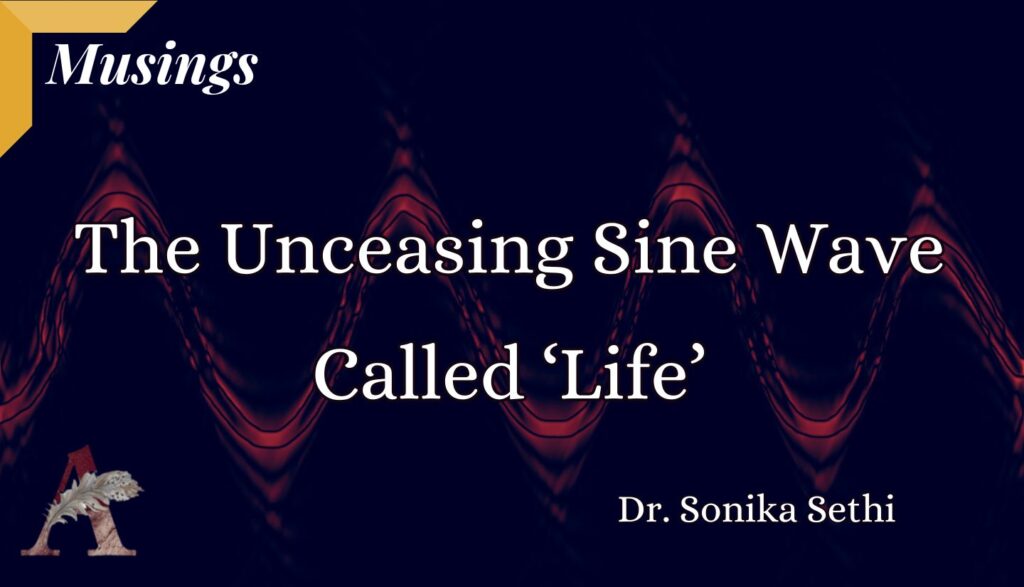
‘Khudi ko kar buland itna ki har taqdeer se pehle Khuda bande se khud pooche, ‘Bata, teri raza kya hai?’ (Raise yourself to such heights that before every destiny, God Himself asks, ‘Tell me, what is your will?’)
Life, akin to an unceasing sine wave, unfolds in a rhythmic dance of crests and troughs. In this intricate choreography, the Creator emerges as a master craftsman, orchestrating the undulating journey that humanity traverses. The ascent to the zenith and the descent to the nadir are inevitable, as the oscillations of fortune shape the human experience.
The Creator’s design is a profound lesson in balance and impermanence. The crest, a pinnacle of success or joy, is not a perpetual sanctuary, and the trough, a valley of challenges or sorrows, is not a perpetual abyss. This inherent ephemerality imparts a poignant beauty to the human condition.
In the ascendant moments, humility becomes the anchor that tethers individuals to their roots. Acknowledging the transitory nature of success, one cultivates a spirit of gratitude and an understanding that the zenith is not a final destination but a fleeting vista.
Conversely, during the descent into the troughs, courage and optimism emerge as the stalwart companions. The Creator’s wisdom lies in the cyclical nature of life, ensuring that despair is not eternal. Encountering challenges becomes an opportunity for resilience, growth, and the eventual ascent towards new crests. Winston Churchill said, “Success is not final, failure is not fatal; it is the courage to continue that counts.”
Amidst the undulating journey of life, a profound philosophy emerges, urging individuals to navigate its crests and troughs with ethical grace. On the ascent, where personal fortunes soar, the essence lies in benevolence and collective upliftment. It is a stark reminder that success need not be exclusive or selfish. Instead of attempting to pull others down, true nobility lies in extending a hand to lift others to greater heights.
Conversely, when confronted with the downward slope, the ethos shift to resilience and self-reflection. The descent into challenges or setbacks should not breed a temptation to drag others into the depths. Instead, it calls for a feisty spirit that endures the trials with integrity and forbearance. There’s an inherent understanding that the shadows that linger are personal burdens, not to be cast upon others.
This philosophy reflects an equilibrium in human conduct— a recognition that the fortunes of one need not be at the expense of another and emphasizes the importance of empathy in times of prosperity, and restraint in moments of adversity. It encapsulates the wisdom that in the intricate dance of life, the true measure of character lies not in exploiting the vulnerable moments of others, but in fostering a collective ascent that transcends individual triumphs and tribulations. It is a call to traverse the unpredictable landscape of existence with a moral compass that guides towards compassion, solidarity, and an unwavering commitment to shared humanity.
The cyclical narrative, therefore, underscores the fact that life’s sine wave, masterfully composed by the Creator, invites humanity to embrace each phase with grace, humility and unwavering courage. Remember what Bob Riley said, “Hard times don’t create heroes. It is during the hard times when the ‘hero’ within us is revealed.”
Sonika Sethi

0 Comments